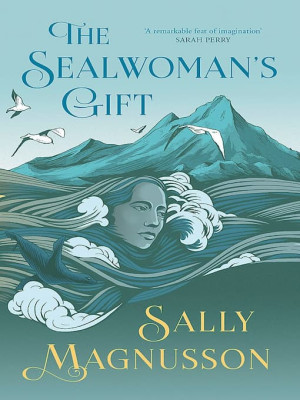Review: The Sealwoman’s Gift by Sally Magnusson
by The Borrowers Book Group Kesgrave Library
The Sealwoman's Gift by Sally Magnusson
The Borrowers Book Group at Kesgrave Library share their thoughts on The Sealwoman's Gift, written by Scottish author Sally Magnusson.
About The Sealwoman's Gift
In 1627 Barbary pirates raided the coast of Iceland and abducted some 400 of its people, including 250 from a tiny island off the mainland. Among the captives sold into slavery in Algiers were the island pastor, his wife and their three children. Although the raid itself is well documented, little is known about what happened to the women and children afterwards.
It was a time when women everywhere were largely silent. In this reimagining, Sally Magnusson gives a voice to Asta, the pastor's wife.
Borrow a copy of The Sealwoman's Gift on our catalogue.
Book group review
This is an unusual book, really two books in one: the first being the historical reprise of the abduction and enslavement of Icelanders by Barbary pirates in the 1620s, and the wonderfully imagined nine years of the life of an educated slave woman in Algiers.
The beginning and end of the book for some of our group made for a slow and disengaging read, as we felt the author was constrained by the facts as chronicled by male Icelanders at the time. However we all thoroughly enjoyed the imaginative and vivid creation of what life could have been like for Asta in Algiers; her love story, the colours, sunshine, sumptuous food and complete contrast to the dark, impoverished life she knew in Iceland, her inner thoughts and banter with her Owner.
Although the setting is in the 1620s and 30s, we felt that nothing much has changed for the lives of women, particularly in some faiths, and the challenges of keeping one’s faith under oppression. The attitudes towards women and expectations of their behaviour were very similar at the time between Iceland and Algeria, regardless of religious belief.
Some of the writing and descriptions are beautifully and poignantly expressed and move to tears. There is a balanced and sympathetic depiction of both male and female characters. Even the title is ambiguous - is it the gift of storytelling?
Recommendation: Stimulated lots of discussion on slavery, reintegration and attitudes towards women.
Love books? Want to discuss them in a reading group? Find out how to get started →
